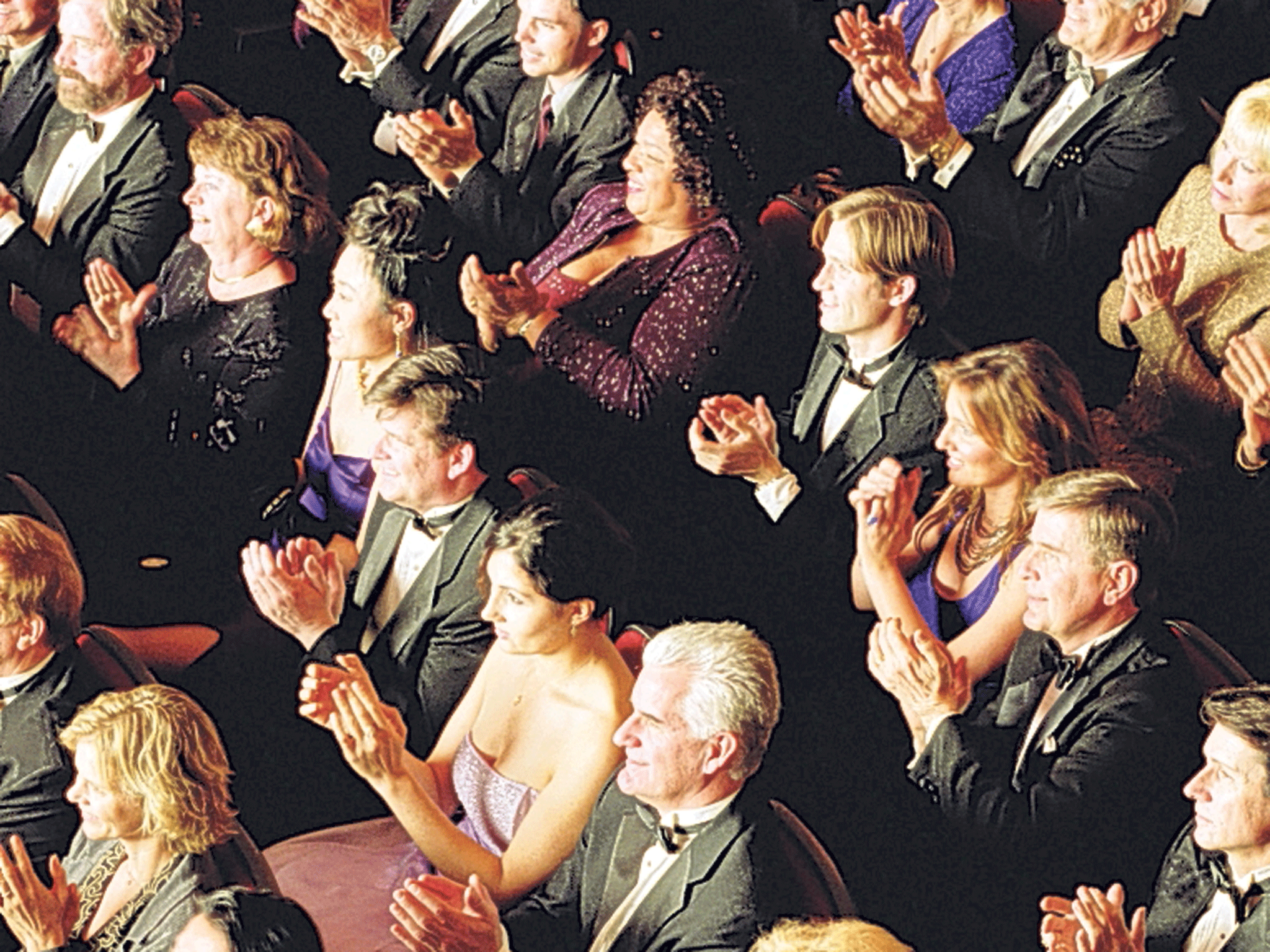Why clapping ruins concerts
Intrusive applause can spoil a classical concert, leading conductors tell Simon O'Hagan

The Rest Is Noise festival starting at the Southbank next week promises to be the most original and challenging classical musical event of the year. And not the least interesting aspect of this celebration of exclusively 20th-century work will be to see how audiences respond to music that has a tendency to be much more cerebral than what went before.
Will the roar that goes up at the climax of a great romantic symphony be replicated when half an hour of minimalism has edged to its conclusion?
How audiences behave at classical concerts is an issue that simply doesn't apply at rock or jazz concerts. The performing of classical music carries certain traditions, and they give rise to two particular areas of contention: first, applause between movements; and second, the lapse in time between the fading away of the final note and the first audience reaction.
These may seem concerns not worth expending nervous energy on, but to musicians, and to many audience members, they matter. Classical music is all about the nuances of the playing and the intensity of the experience, and you don't have to be a snob to feel that an ill-timed audience interjection can undermine them.
For the conductor Marin Alsop, it isn't always an issue, but it can be. "When the music warrants applause – ie at the end of the first movement of the Tchaikovsky violin concerto – I don't mind because it is a spontaneous, emotional, instinctual response," she says. "The only time I am disturbed by applause is when it feels perfunctory or obligatory simply because something has concluded – for example at the end of a slow movement of a Mahler symphony."
Colin Currie, widely regarded as the world's most prominent percussion soloist, says the key is the "appropriate quality and timing of the appreciation". He recalls a 2012 Prom when applause between movements got completely out of hand. "It was the National Youth Orchestra's performance of Messiaen's 10-movement Turangalîla-Symphonie. When applause burst out several seconds after the eccentric conclusion to the first movement, I feared the very worst. And indeed it was so, with increasingly awkward applause after each of the successive movements despite the often ambiguous and contemplative nature of many of the movements and their conclusions."
Kirill Karabits, the principal conductor of the Bournemouth Symphony Orchestra, is broadly sympathetic to the full range and timing of audience response. "Music evokes emotions and people should be able to express them freely – with respect to the performers of course," he says.
Audience behaviour at the end of a piece is a separate matter, it seems. "I am more bothered by those rare times when people feel the need to rush in to applaud at the final note of a piece without regard for the mood if it is a quiet ending," Alsop says.
Of course, conductors can to some extent control audience reaction at the end of a piece, and keep at bay the audience member desperate to make their mark by being the first to applaud. Within the past few weeks, I've seen both John Eliot Gardiner and the jazzman John Surman do identical things at the conclusion of concerts they've conducted – remain with their baton aloft long after the final note has faded away, as if forming a barrier to premature applause, defying anyone to break the spell. On neither occasion could a sound be heard until the baton came down.
Sometimes it's not so much a case of the Rest Is Noise as the Rest Is Silence.
The Rest Is Noise: the Soundtrack of the 20th Century starts at the Southbank Centre, London SE1 (0844 875 0073) on 19 January
Subscribe to Independent Premium to bookmark this article
Want to bookmark your favourite articles and stories to read or reference later? Start your Independent Premium subscription today.

Join our commenting forum
Join thought-provoking conversations, follow other Independent readers and see their replies